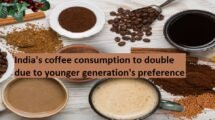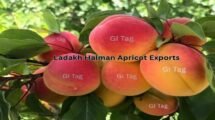India’s Coffee Exports to the US May Be Hit by 26% Tariff, Say Exporters
India’s coffee exports to the US—particularly instant or soluble coffee—could be affected by the imposition of a 26 % tariff, according to exporters.
“The main issue will be with instant coffee exports to the US. Indian instant coffee competes with products from Brazil and Ecuador, both of which face only a 10 % tariff. With India now facing a 26 % tariff, this segment could be severely impacted,” said Ramesh Rajah, president of the Coffee Exporters Association.
He noted that while speciality coffee exports might also be affected, there is unlikely to be any significant impact on regular green bean shipments.
A Smaller Market
The US is a relatively smaller market for Indian coffee, contributing less than 4 % of total exports in value terms. India’s coffee exports to the US were valued at over $67 million, out of a total of $1.8 billion.
In terms of volume, India exported around 9,000 tonnes of coffee to the US, while total exports for 2024–25 are estimated at 3.89 lakh tonnes. Also Read | Coffee growers worried that excessive rains may resulted in berry droppings and fungal diseases
Around 60 % of the coffee exports to the US are instant coffee, while the rest consists of regular and some speciality coffee.
Brazil, the world’s largest coffee producer, which faces only a 10 % tariff, is likely to gain the most in the US market. In contrast, Vietnam—the second-largest producer—is subject to a 46 % levy. Many coffee-producing countries across Asia and Africa are also facing steep tariffs.
Limited Impact on Speciality Coffee
Rajah mentioned that Indian exporters may need to explore alternative markets. He added that India is already at a disadvantage compared to producers in Central and South America, with Mexico being a major supplier to the US.
DM Purnesh, President of the Speciality Coffee Association of India, said there won’t be any significant impact on speciality coffee exports to the US, as most price negotiations with buyers were already concluded in February-March. There have only been isolated cases of buyers seeking discounts, he added.


















Add Comment